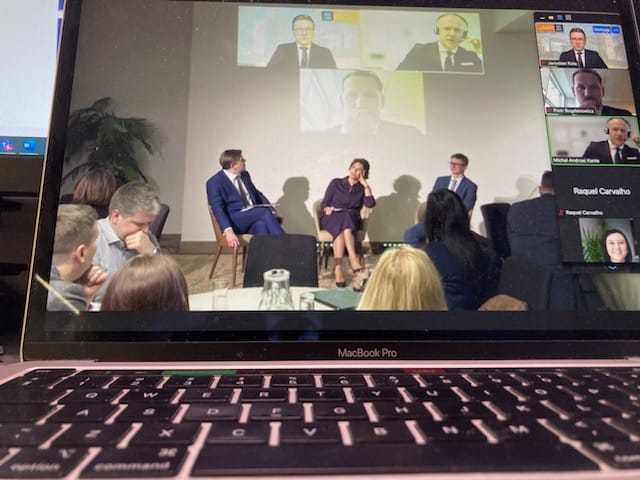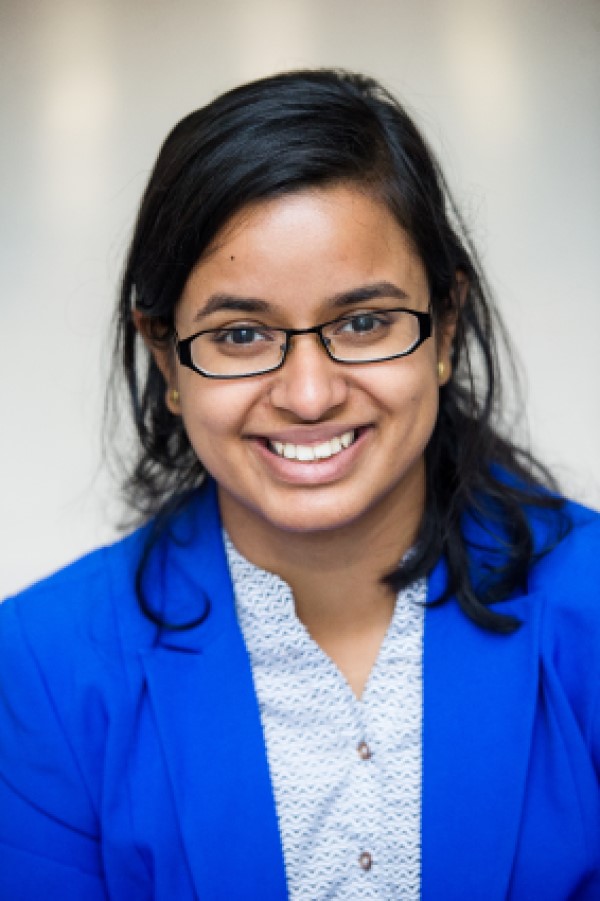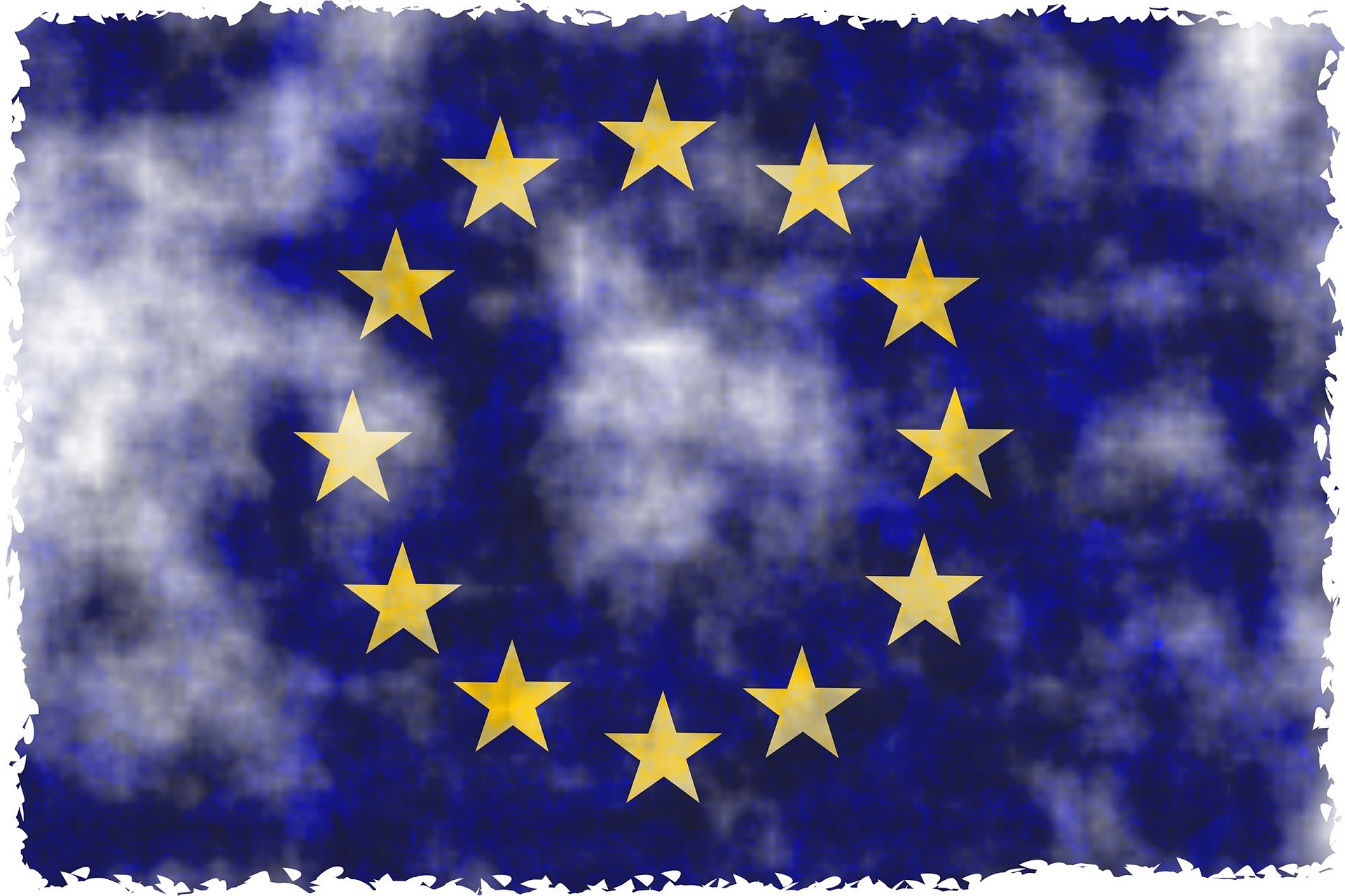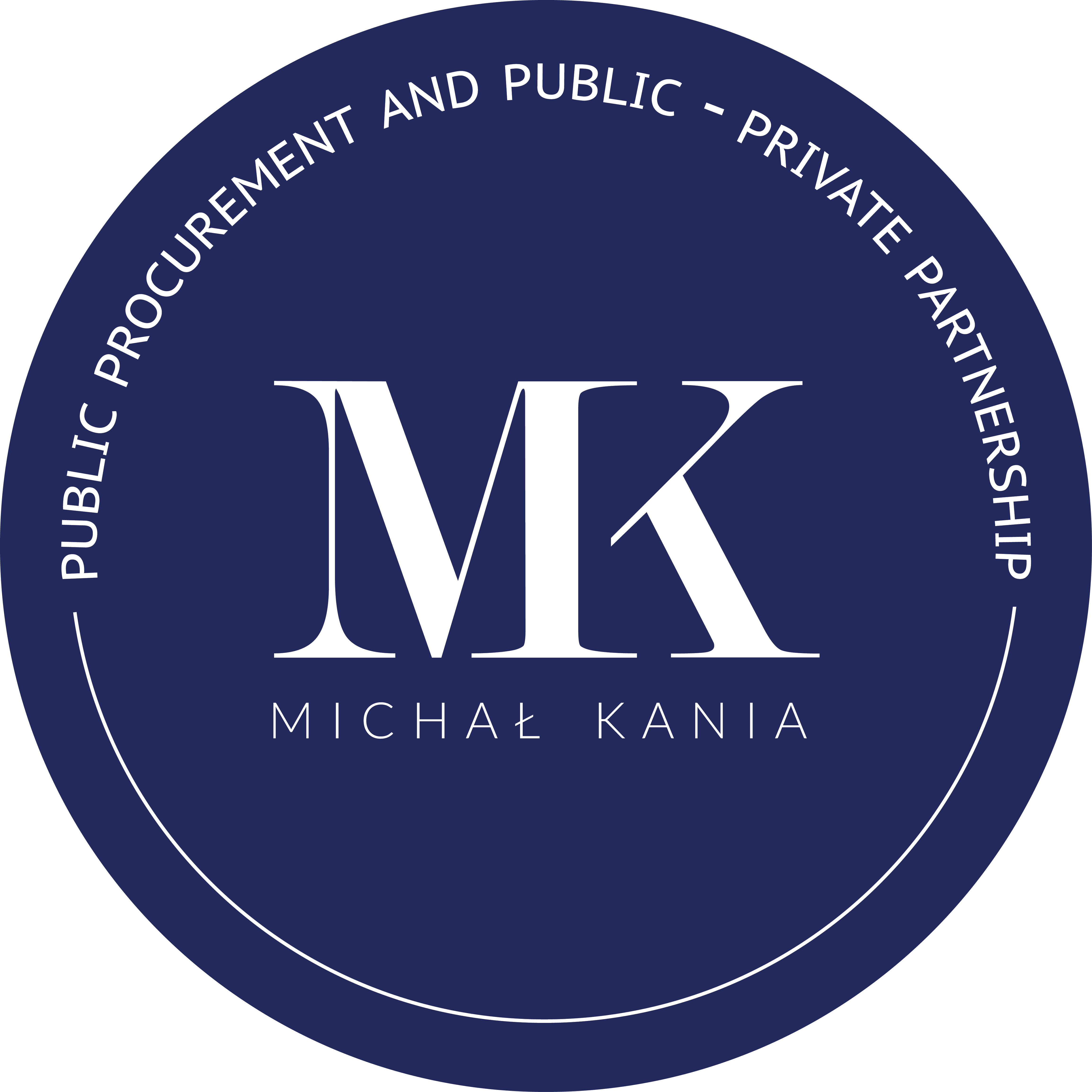"Hardship clause in the Polish Public Procurement Act in the context of the Coronavirus pandemic and the war in Ukraine." Presentation during the conference "Public procurement in times of crisis: national experiences", Tallinn (Estonia)

The conference "Public procurement in times of crisis: national experiences" was held on 26 January in Tartu (Estonia). The conference was organised by the Public Procurement Law Research Group at the University of Tartu, School of Law. In the part devoted to crisis procurement challenges in Poland, I had the chance to give presentation along with Jarosław Kola (Assistant Professor, Adam Mickiewicz University, Poznan) and Piotr Bogdanowicz (Professor, University of Warsaw).
The topic of my presentation was "Hardship clause in the Polish Public Procurement Law in the context of the Coronavirus pandemic and the war in Ukraine." The presentation is related to research conducted as part of the Purple project at the Centre of Private Governance at the University of Copenhagen. As part of the project, research is conducted on the relationship and impact of public procurement law on private (contract) law. One construction that has such an impact is the hardship clause.
Both the Coronavirus pandemic and the war in Ukraine have significantly affected public procurement contracts. First the lockdowns led to disruptions to supply chains and labour shortages, then there was the energy crisis and inflation, together affecting three critical aspects of public contracts, namely price, time and manner of performance. Minimising the risks associated with the unexpected circumstances is primarily associated with the use of review and adaptation clauses. Under the Polish Public Procurement Act, adopted on 11 September 2019 (Journal of Laws of 2019, item 2019) and other legal regulations related to Coronavirus and crises caused by the war, some of these clauses are obligatory, while others are optional. However, their application does not give the parties to a public procurement contract complete protection against the occurrence of unexpected consequences.
For this reason, there is currently an increased interest in the Rebus sic stantibus clause on the Polish public procurement market. The Rebus sic stantibus clause is provided for under Article 357(1) of the Polish Civil Code. The application of the Civil Code on the grounds of public contracts results from Article 8 of the Public Procurement Law. Due to Article 357(1) of the Polish Civil Code, if an extraordinary change in circumstances leads to a performance entailing excessive difficulties, or exposes one of the parties to a serious loss that the parties did not foresee when executing the contract, the court may, having considered the parties' interests, in accordance with the principles of community life, designate the manner of performing the obligation, the value of the performance or even decide that the contract be dissolved. When dissolving the contract, the court may, if necessary, decide how accounts will be settled between the parties, being guided by the principles set forth in the preceding sentence. The Rebus sic stantibus clause provided in the Polish Civil Code is a kind of hardship clause known to many legal orders. This clause is broadly known as the "Doctrine of frustration" in United Kingdom, "Wegfall der Geschaftsgrundlage" in Germany, "Eccessiva onerosità sopravvenuta" in Italy, "Imprévision" in France and the "Doctrine of impracticability" in USA. These clauses are also provided for under model contract laws, including the Principles of European Contract Law (in Article 6.111), UNIDROIT – International Institute for the Unification of Private Law (in Article 6.21.-6.23), and the Draft Common Frame for References (in Article III.-3:104).
The application of the Rebus sic stantibus clause on the grounds of public procurement contracts raises several important doubts. These relate primarily to whether Rebus sic stantibus creates an autonomous basis for modifying a public contract beyond those provided for in Articles 454 and 455 of the Polish Public Procurement Law (respectively Article 72 of Directive 2014/24/EU on public procurement). Alternatively, it relates to whether the Rebus sic stantibus clause is a modification of the solution provided in Article 455(1)(4) of the Polish Public Procurement Law (respectively Article 72(1)(c) of the Directive on public procurement). The application of the Rebus sic stantibus clause is also related to questions about the limits of judicial intervention in the modification of public contracts. This problem also relates to the jurisprudence of arbitration courts in the context of the relationship between the application of public procurement rules and the principle of equity. The assumption whereby the use of the Rebus sic stantibus clause is subject to restrictions based on public procurement contracts may lead to another more general question. Do solutions for modifying public contracts in connection with unforeseen situations adopted under Directive 2014/24/EU on public procurement in times of economic prosperity and relatively stable geopolitical situation stand the test in times of current, deep and serious crises? Will these rules serve their purpose in the coming, uncertain years? On the other hand, should the experience of the crisis caused by the Coronavirus pandemic and the war in Ukraine persuade the legislators to make the rules for modifying public procurement contracts more flexible in the direction set by the assumptions of private (contract) law?
In my presentation, I first briefly pointed out the origins of the hardship clause, and then discussed the basis for applying the Rebus sic stantibus clause in public procurement contracts. Finally, I also pointed out the problems that can arise when applying the Rebus sic stantibus clause in public procurement law.
Sustainable Public Procurement Through Private Law Enforcement - Launching Seminar

On the 9th September 2022, the Purchase Power – Sustainable Public Procurement Through Private Law Enforcement PurpLE project was launched with an international seminar introducing the project's main themes at the Faculty of Law, University of Copenhagen. Public procurement professionals (scholars, lawyers, and practitioners) from Denmark and from around Europe gathered to hear more about the PurpLE project and give their feedback on the planned scope of the research that will be thoroughly researched during the next three years. The project team is led by associate professor Marta Andhov and includes Olga Giakouminaki (postdoc), Michał Kania (Senior Researcher), Désirée Klingler (postdoc) and Sven Mikulic (student assistant) The project has been funded by Carlsberg Foundation and runs from September 1, 2022 for 3 years at the Center for Private Governance, Faculty of Law, University of Copenhagen.
In the PurpLE project, we are researching the tension between public procurement and private law, focusing on the following research questions:
1) How does public procurement law impact the interpretation of contract law?
2) Can private law limit the outcome of public procurement law and, if so, how?
3) What does this complex interaction between public procurement and private law mean for achieving the United Nations Sustainable Development Goals agenda?
My main role in the project will be to investigate the research question of "how and why selected contract law constructions are modified by public procurement law".
One of the aspects of the potential point of reference of the planned research is the contract regulations contained in the Model law - Draft Common Frame of References, as well as contract regulations in the selected national legal jurisdictions. The research question refers to the context of the current challenges of the post-pandemic period and the war in Ukraine. Both events have significantly affected the economic situation, including the performance of public procurement contracts. Problems that arise in this context include, among others: labour shortages, interruptions in supply chains, price increases, and limited availability of products. Rising energy prices and inflation are the latest challenges for contracting authorities and contractors. Indicted challenges often result in the need for modification or termination of public procurement contracts. They also affect the liability issues of the contracting parties. Moreover, the current geopolitical situation results in the adoption of several new legal solutions at the EU's level. These administrative regulations limit the freedom of contracting authorities to contract by excluding specific categories of entities from the circle of potential contractors. The current crises result in the questions of how their effects should be legally classified in the context of such legal constructs as the contract law clauses of rebus sic stantibus and force majeure. What should be the understanding of these clauses regarding the concept of" unforeseeable situations" referred to in Article 72(1)(c) of the Directive 2014/24/EU? Does the current public contracts regulation fit its purpose, or should it be extended toward classical contract law principles? What is the contemporary (COVID-19, war in Ukraine) standard of diligent contracting authority? What should be the extent of interference of public law regulations in the freedom of contracting in public procurement?
Public procurement and innovation. Is defence different? Conversation with Dr Oishee Kundu (Cardiff University)
![]()
Institute of Law at the University of Silesia in Katowice invites you to participate in a 60 minutes conversation with Dr Oishee Kundu (Cardiff University) about the role of innovation in public procurement, similarities and differences with the defence sector.
Date: Wednesday, January 19, 2022 14.00 CET/ 8.00 AM, ET

Speaker: Dr Oishee Kundu - Research Associate at Cardiff University, supporting the Innovative Future Services program within Y Lab, the public services innovation lab in Wales. She is a founding member of CRISPP, a collaborative network of researchers in Manchester and Birmingham investigating innovative and strategic public procurement in the UK.
Her doctoral project ''Public procurement and innovation: is defence different?'' explores the assumptions about defence procurement and examines them within the empirical context of four recent public procurement projects in the UK (two defence projects, and two ‘civilian’ public transport projects). She worked under the supervision of Prof Andrew James and Dr John Rigby at the University of Manchester. The thesis was examined by Prof Nick Vonortas (The George Washington University) and Prof Jakob Edler (University of Manchester, Fraunhofer Institute for Systems and Innovation Research) in March 2021.
In her presentation, Dr Kundu will briefly recount the research which was conducted, describing the dimensions along which defence and civilian procurement were compared (the framework), the different sources of data and research methods used (mainly text analysis), and the findings.
Host: Michał Kania (Professor at the University of Silesia, Poland)
The Public procurement role in the achievement of the Polish National Recovery Plan aims

In the latest issue of The European Journal of Accounting, Finance & Business, I had the opportunity to discuss the problems relating to the critical role of public procurement if Poland is awarded funds from the European Reconstruction Fund. While preparing this article in July, I hoped that it would not be merely theoretical.
I still hope so...
Article available here: European Journal of Accounting, Finance & Business
Public procurement in the European Judical Review

The 7th issue of the European Judicial Review has been entirely devoted to issues related to public procurement. The issue has been realesed with the contribution of the Polish Public Procurement Association. Among the authors: Aldona Kowalczyk, prof. Aleksandra Sołtysińska, dr Wojciech Hartung, Katarzyna Kuźma, prof. Marta Andhov, Mirella Lechna-Marchewka, Anna Szymańska, prof. Piotr Bogdanowicz, Jarosław Jerzykowski, dr Jarosław Kola, Anna Specht-Schampera, Tomasz Dąbrowski, and prof. Michał Kania.
Issues discussed include: the institution of self-cleaning in public procurement, grounds for exclusion from a public procurement procedure, the framework agreement in European public procurement law, cancellation of a public procurement contract due to violation of the standstill period, termination of a procurement contract by mutual agreement of the parties, the remuneration of a public contract and the examination of an abnormally low price, the restrictive approach to the exclusion of the application of EU public procurement law in the broad sense of in-house procurement, the impact of the White Paper on the leveling of foreign subsidies on public procurement markets.
More to read:EJR
Public Procurement and Public Private-Partnership

Public Procurement and Public Private-Partnership (PPP) are methods, which can support public sector in achieving common golas, such as: sustainability and innovation of public infrastructure. Public procurement and PPP shall respond to the current global challenges such as combat of pandemia, implementation of 4th Industrial Revolution benefits, 5G, building Smart Cities, responding to geostrategic challenges and improving of eco-innovation. The role of academics, both private and public sector is to support the public procurement and PPP in common public mission.

Michał Kania, professor at the University of Silesia in Poland, Senior Researcher at the Centre for Private Governance (University of Copenhagen), legal adviser with 16 years of practical experience in PPP, public procurement and concession contracts, member of the Just Transition Research Group at the University of Silesia. Active member of the Public Procurement Association in Poland, Visiting Fulbright Scholar at the George Washington University (2018-2019), Fellowship of German Academic Exchange Service at the Ludwig Maximilian University in Munich (2017), author of more than 100 publications regarding PPP, public procurement law, administration law and administration procedure, speaker at the Polish and international conferences, initiator and lecturer at the Postgraduate Studies in Public-Private Partnership and Public Procurement at the University of Silesia, founder and the first president of the PPP Academic Support Foundation, founder of the program ‘’PPP- Good Choice’’ (active in years 2009 – 2014), former president of the PPP Commission by the Conference of Rectors of Academic Schools in Poland, independent adviser for the Polish Ministry of Development for the concept of the new Polish Public Procurement Act, adopted on 11 September 2019, plenipotentiary of the President of the University of Silesia for PPP projects, MBA, with the final thesis: ,,Economic and financial analyses in public – private partnership projects’’.